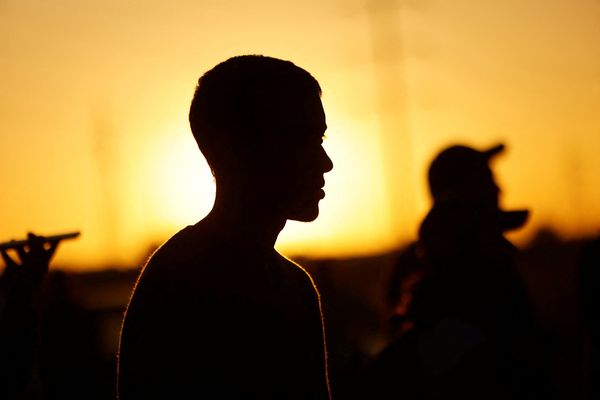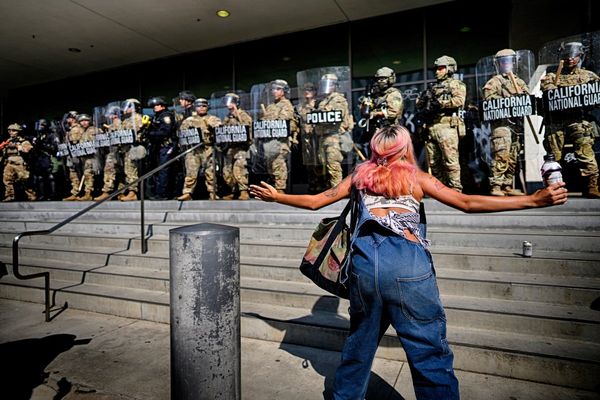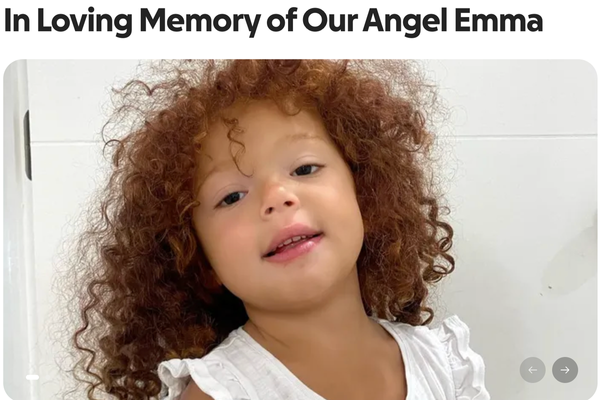
The growing attention towards women’s football worldwide has inspired many women to play. Representing their country is a source of pride and a significant achievement. However, there are still gaps in the process. At the Paralympic Games in Paris this year, only men will take to the pitch, fighting for a medal in five-a-side blind football.
Men’s blind five-a-side football made its Paralympic debut in 2004 but the women are still waiting to make their entrance. There is some hope, however, that this will change for the 2028 Games in Los Angeles. The International Blind Sports Federation (IBSA) is awaiting a decision by the International Paralympic Committee (IPC) on the presence of women’s blind football in the programme. “Having women’s football as a Paralympic sport means that it will be supported by sponsors all over the world”, says Elias Mastoras, IBSA’s blind football chairperson. “I hope the IPC will be open-minded because women’s blind football is developing all over the world.”
Mastoras is right: women’s blind football is continuing to grow. Its first official world championships was held in Birmingham last August. Argentina won the eight-team tournament and Las Murciélagas (the Bat Girls) are now preparing to host the the first women’s grand prix in October.
Gracia Sosa, the 33-year-old captain of the Argentina team and voted best player at the world championships, hopes the sport will be accepted for the 2028 Paralympic Games and that her national team will get more support. “Sports have always enchanted me,” she says. “It has been a beautiful experience with the girls. It is a very nice group and we are really united. Support from the fans is a bit difficult but since last year’s championship people know that in Argentina we have a team and they support us.”
Sosa, who has also competed for Argentina in athletics and rowing, fell in love with football as a child and played for years alongside men before moving to other sports because there were no blind girls’ teams in her home city of Córdoba. In 2016, she joined Las Murciélagas and has been with the team since, coached by her childhood teammate, Gonzalo Abbas. For her, one of the highlights of the world championships was being able to enjoy the international atmosphere with her team.
“My English was terrible,” she laughs. “But we managed to communicate and connect with the German team. After the match we took photos and stayed there, together. It was a great feeling. They gave us those kinds of hugs that you feel in your heart, you know? They have never met you before, but were happy to be there.
“I always say that the pitch is freedom for someone who doesn’t see. Those who know how to appreciate it can enjoy it to the fullest. Even if you lose, draw, and even when things don’t go well, it’s where you can be free. That’s how I see it: and never mess with my football or my mate, or I’ll be mad.”
Five-a-side blind football is played on a 40x20-metre pitch. Players can be either totally blind – B1 category – or partially sighted (B2 and B3) to compete in women’s football, allowing for more inclusivity. The football must contain bells or another system that ensures the ball makes a noise when it is moving on the pitch or through the air. There are records of the sport being played since the 1920s, but the rules were not recognised internationally until 1996. Until last year only men had been able to play in official tournaments.
“What we saw in Birmingham was amazing,” says Mastoras. “It was a clear signal that women around the world can participate in the sport and we are here to listen to their voices.”
Nearly 15 years ago, women’s blind football teams that already existed in many countries got together in Marburg, Germany, to play an unofficial international tournament. Brazilian club Urece, based in Rio de Janeiro, won it. Years later, in 2017 and 2019, two camps hosted about 60 players from nine countries in Vienna, Austria. The first world championship was due to be played in 2020 in Enugo, Nigeria – but was postponed because of the pandemic.
“In Paris blind football will be played in front of the Eiffel Tower and all of the media will be there so it is like a turning point for the sport,” Mastoras says. “It would have been amazing to have women’s football there too. But now it will hopefully be in another iconic set up, in the United States, a country where women’s football is very important, very popular.”
Sosa, who competed in athletics in the 2008 Games in Beijing, now dreams to return to the Paralympics 20 years later. “I was only 18 years old then, I was really young. To be able to feel that adrenaline in a different sport would be amazing,” she says. “Football is so beautiful and having women’s football in the Paralympics would be very important because it is another door for women to continue playing this beautiful sport.”
Get in touch
If you have any questions or comments about any of our newsletters please email moving.goalposts@theguardian.com. And a reminder that Moving the Goalposts runs twice-weekly, each Tuesday and Thursday.
This is an extract from our free weekly email, Moving the Goalposts. To get the full edition visit this page and follow the instructions.







